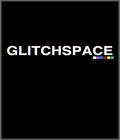Since the release of Portal all those years ago, there have been quite a few games that dealt with creating and solving puzzles in the 3-D space. Titles like Project Temporality and Q.U.B.E. show that there are still plenty of ideas to be uncovered in the puzzle genre. Glitchspace brings some new ideas about how puzzle games can work in this space, and we got a chance to check out the latest alpha on Steam Early Access.
At first glance, Glitchspace looks like a minimalist first-person puzzle game. The platforms are nothing more than chunky blocks with some good lighting, and your gun is similarly blocky, though it has slightly more detail. The environments look like they came out of Mirror's Edge, since almost everything is bathed in bright shades of white and specific platforms are bright red. The ambient music is calming and never wears out its welcome. Even though the sparse set of instructions floats through the air, it all looks very low-fi, with the exception of red platforms and doorways that are constantly glitching. Once you're given the instruction to right-click on a red block, everything changes.
Right-clicking on a red block brings up an overlay of nodes with specific instructions that are connected in a logical manner. Most of the time, the puzzle has you trying to figure out which parts are needed to make the block behave in the desired way. You can use a limited amount of nodes that aren't locked down. Other times, you have to modify what's there by using the unlocked nodes, replacing one node for another with a completely different instruction set, or deleting some nodes altogether. The result can be as benign as moving the target block to a different spot or as spectacular as making the block grow to an enormous size. You can even cause the block to break once it's hit with a force greater than its threshold.
The idea behind using basic programming techniques via node representation is a clever one. Though you're given a limited amount of instructions to manipulate in each block, you still have some freedom in terms of how you want the nodes placed. You can replicate the nodes multiple times, so you have some freedom in solving the puzzle. You can make the instructions for some blocks as efficient — or as complicated — as you want. You can also reuse links from certain nodes for different instruction sets. Whether you realize it or not, you'll pick up some basic programming principles along the way, and it becomes more evident when you run across a block without any locked-down instruction nodes. For those already versed in a programming language, the puzzles can be much easier, but for those with a blank slate, the iconography in the nodes helps you learn rather quickly.
Once you grow comfortable with the idea of programming other blocks, Glitchspace introduces a mechanic that actually makes you use your gun. Similar to the blocks, certain areas make your gun modifiable. You'll have to change the code to give your gun the ability to program blocks that lack inherent instructions. Like the blocks, your gun is capable of a wide range of things, from making blocks grow or shrink or converting them into bouncy objects. Though it hasn't changed much from the original idea of reprogramming blocks, it allows for some very interesting puzzles during the latter half of the game.
As it currently stands, the alpha is quite short, and the campaign mode has about 20 levels that take about 90 minutes to solve. The quality of the puzzles is good and gives us hope that future puzzles will be of a similar quality. There's also a sandbox mode that lets you play around with the programming mechanic to your heart's content, but the mode isn't fleshed out enough yet. For those who are early adopters of the Oculus Rift, the game supports it, though we don't have one of those units, so we can't offer any commentary.
The core mechanics of Glitchspace show off lots of neat ideas that work quite well. With a good presentation and somewhat easy-to-understand mechanics, the game has some great potential, and we can't wait to see where it goes from here. The full game is scheduled for March 2015, but you can check it out on Steam Early Access.
More articles about Glitchspace













 Glitchspace is a first-person puzzle platformer that focuses on a visual programming mechanic. Stretch and scale objects to make a bridge. Apply force to objects to bounce to high places. Fire code at objects and change their physical properties.
Glitchspace is a first-person puzzle platformer that focuses on a visual programming mechanic. Stretch and scale objects to make a bridge. Apply force to objects to bounce to high places. Fire code at objects and change their physical properties.












